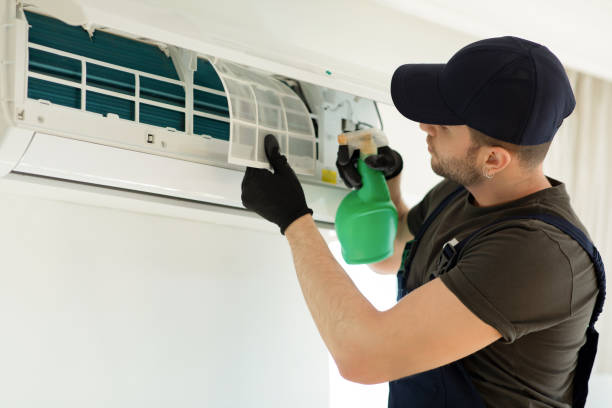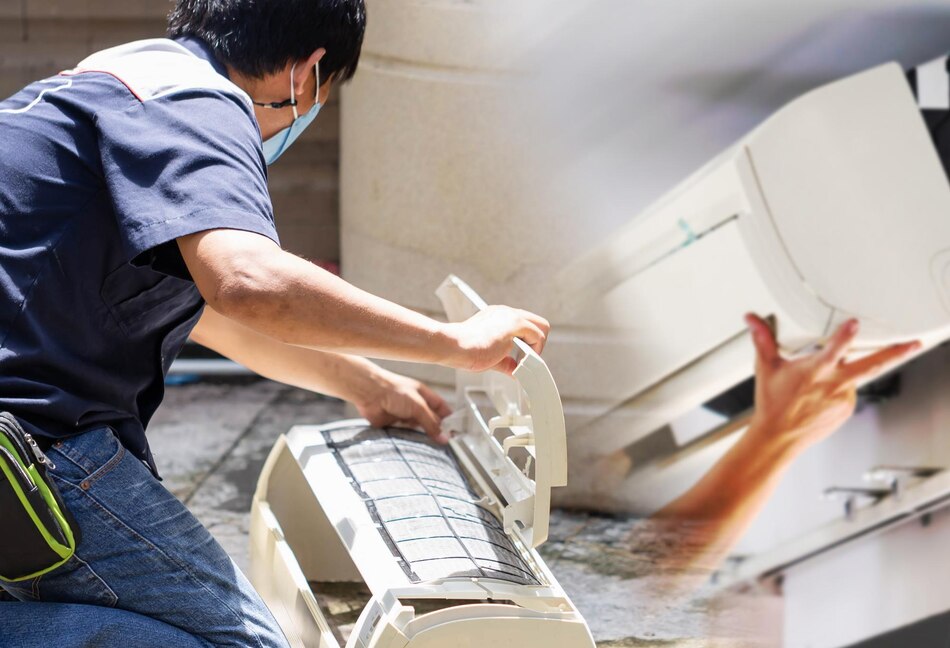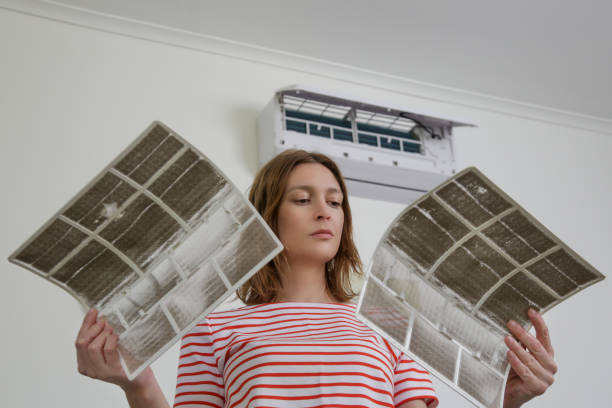Aircon systems are central to modern life, especially in Singapore, where the tropical climate calls for cooling solutions. They offer a reliable way to cool your space, but did you know they could also affect the air quality inside your home or office? Poor air quality can cause discomfort, exacerbate allergies, and negatively impact your health. If you notice that the aircon in your home has poor air quality, it’s essential to take immediate action to rectify the issue.
Signs of Poor Air Quality from Your Aircon
Before diving into what actions you must take, let’s first understand how to spot poor air quality caused by your aircon. Common signs include:
- Musty or Unpleasant Odor: A foul smell from the aircon is usually a sign of mold or bacteria growth inside the unit. This is especially common if your aircon unit has been left stagnant or serviced in a while.
- Dusty or Dirty Air: If your aircon starts blowing dust or you notice more dust accumulating in your living space, it’s a clear sign that the filters or the ducts may need cleaning.
- Increased Allergy Symptoms: If you or your family members start experiencing more allergic reactions, such as sneezing, coughing, or itchy eyes, it may be because the air circulating through your aircon contains allergens.
- Weak or Insufficient Airflow: If your aircon’s airflow is weak or inconsistent, it could indicate a buildup of dirt or debris in the air filters or ducts, affecting its ability to properly filter air.
- Higher Humidity Levels: Air conditioners are designed to remove humidity. If your aircon is not effectively cooling and the humidity levels in your home seem to be high, this could be due to a malfunctioning system.
If you notice any of these issues, it’s time to address the poor air quality of your aircon.
Steps to Fix Poor Air Quality in Your Aircon
1. Clean or Replace the Air Filters
The most common cause of poor air quality is dirty or clogged filters. Air filters trap dust, dirt, and other pollutants from entering your living space, but they stop doing their job effectively when they get clogged. Over time, this can result in poor air quality being circulated in your home.
What to do:
- Check the air filters for dust and dirt buildup. If they appear dirty, remove and clean them according to the manufacturer’s instructions.
- If cleaning doesn’t work, replace the air filters. Depending on usage, most filters should be replaced every 3-6 months.
- High-efficiency particulate air (HEPA) filters are better at trapping smaller particles and improving air quality.
2. Clean the Coils and Drain Pan
Another important component to check is the air conditioner’s evaporator and condenser coils. These coils can accumulate dust and grime over time, leading to a decrease in the efficiency of your aircon. When the coils are dirty, they may not absorb or release heat properly, affecting air quality and the overall cooling performance.
What to do:
- Turn off the aircon and carefully clean the coils using a coil cleaner, ensuring that you follow the manufacturer’s instructions.
- Ensure the drain pan is free from any standing water, which can lead to mold and bacteria growth.
- Clean the coils once or twice yearly to ensure your aircon works efficiently.
3. Check for Mold and Mildew Growth
If you notice a musty smell coming from your aircon, mold and mildew may be the culprits. Mold thrives in warm, moist environments, making aircon systems a perfect breeding ground, especially when the system is not regularly maintained.
What to do:
- Inspect the evaporator coils and drainage pan for any visible signs of mold growth.
- Use an aircon cleaner or mold remover to clean any moldy areas. You may also use vinegar and water for a more natural solution.
- If the mold problem is severe, consider calling a professional technician to handle the cleaning process.

4. Clean the Ducts
Aircon ducts can accumulate dirt, dust, and other debris, restricting airflow and negatively impacting air quality. If your aircon has poor airflow and you notice dust accumulating in your home, it may be time to clean the ducts.
What to do:
- Turn off the aircon system before you begin cleaning.
- You can use a vacuum with a long hose attachment to clean the ducts, or you may need a specialized brush.
- Duct cleaning can be challenging, so if you feel unsure, it’s always a good idea to call a professional duct cleaning service to do a thorough job.
5. Maintain Proper Humidity Levels
Aircons are designed to cool the air and reduce humidity levels. If your aircon is not properly regulating the humidity, it can create a perfect mold and bacteria growth environment. High humidity can also make the air feel stuffy and uncomfortable.
What to do:
- Ensure that your aircon is appropriately sized for the room. It may struggle to control humidity if it’s too large or too small.
- You can also use a dehumidifier in conjunction with your aircon to further reduce moisture levels in the air, especially in areas with high humidity, like the bathroom or kitchen.
- Regularly check the humidity level using a hygrometer to ensure it stays within a comfortable range of 40%-60%.
6. Ensure Proper Ventilation
Proper ventilation is key to maintaining good air quality in your home. If your aircon doesn’t have sufficient ventilation, stale air can accumulate, negatively impacting air quality.
What to do:
- Ensure that the air intake and exhaust vents are free from blockages.
- Keep windows open occasionally to allow fresh air to circulate throughout your home.
- Consider installing additional vents or using exhaust fans to improve airflow in rooms where you use air conditioning the most.

7. Regular Maintenance and Servicing
Regular aircon maintenance is essential for running the system efficiently and maintaining good air quality. Scheduling regular servicing can prevent the buildup of dust, mold, and other contaminants that degrade air quality.
What to do:
- Call a professional aircon service technician to perform an annual maintenance checkup. This includes cleaning the components, checking refrigerant levels, and ensuring the system runs efficiently.
- Regular servicing can help identify problems before they get worse, ensuring the longevity of your aircon system.
When to Call a Professional
While homeowners can handle some of the tasks above, others are better left to professionals. If you’ve followed all the steps and your aircon still has poor air quality, it’s time to call in an expert. A certified aircon technician can diagnose any underlying issues and provide the necessary repairs or servicing.
Signs You Should Call a Professional:
- Persistent bad odors that cannot be eliminated by cleaning.
- Poor airflow or inconsistent cooling.
- Visible mold or mold growth inside the aircon unit.
- Difficulty maintaining humidity levels or cooling efficiency.
Final Thoughts
Maintaining good air quality in your home is essential for your health and well-being, and your aircon plays a crucial role. You can significantly improve the air quality by regularly cleaning your aircon filters, checking for mold, and ensuring proper ventilation. If the problem persists, it’s best to consult a professional aircon technician who can help resolve any issues and ensure your system is running efficiently. Regular maintenance is key to ensuring your aircon performs optimally and keeps the air clean and comfortable.



You must be logged in to post a comment.